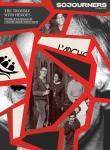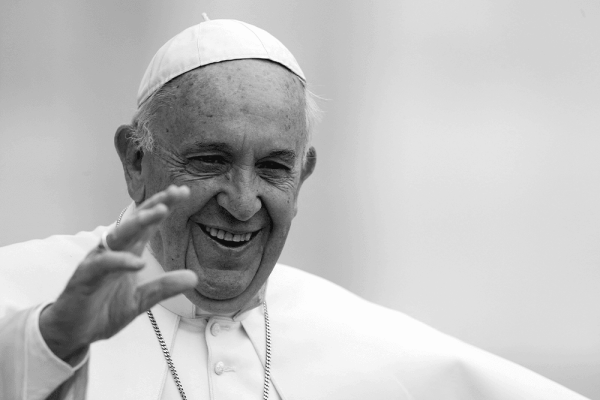HAVE YOU EVER had one of those perfect moments?
My wife and I sat on a bench at the farmers market with a plate of steaming hot tamales before us and a bag of crisp fennel bulbs, Pink Lady apples, and fresh spinach at our feet. The air smelled of salt and cooking oil. A deep yellow and iridescent gold light wrapped around us. Every noise fell away in a holy hush. We met, however fleeting, the “still point of the turning world” described by poet T.S. Eliot. Held and beheld.
To be honest, I usually miss these moments. Though I try (religiously) to keep custody of my mind and attention, the world we live in now beeps, dings, buzzes, and updates 24/7. It’s hard for God to break in. Perhaps this description of digital architecture’s pointed intrusions into our one beautiful life is too minimalist. Most days, I’m holding my breath against the crushing dynamics of digital onrush and knowledge outflow. I miss the still points between the crest and lip of that wave.
But I won’t blame my “monkey mind” wholly on instant communication. An unsettled, restless, disquieted mind is as old as humanity (and perhaps distinct to us). My guess is that we’ve been prone to distraction since we first glimpsed that shiny, delicious apple, just exceeding our grasp. Nearly every religious tradition teaches techniques for training attention and concentration — not to detach or parade a black belt in “mindfulness,” but because the taproot of anxious toil consists of pride, ego, and fear, each of which separates us from God. Pride because whole universes of social need appear to have me at their center. Ego because the ease with which digital messages puncture my private life makes me feel that no place is safe, no time can’t be breached, and that I must react or risk, as a result, a plummet in self-value. Fear from my brain’s ancient amygdala that if I don’t react (with nearly involuntary muscle response), I might die, might be cut from the herd.
MORE THAN TWO millennia ago, the Jewish sage Ben Sira of Jerusalem offered a precise diagnosis: “The beginning of pride is stubbornness in withdrawing the heart from one’s Maker” (Sirach 10:12). Prayer and contemplative practices, service that centers community rather than self, and sabbath disciplines that reattach one’s heart to that of our Maker: All teach us to attend to the “still points.”
Ben Sira warns not to interfere in other people’s business (11:9). Seriously? What would happen to social media? And not to undertake too many activities because, as theologian and mystic Howard Thurman writes, “There is some strange magic in activity.” Chasing after activity leads to failure, and one will never be free, no matter our escape plans. Ben Sira points to my present condition: “There are those who exhaust themselves, tire themselves out and become anxious, yet in the end they are only the poorer” (11:11).
In The Spirit of Life, theologian Jürgen Moltmann reflects on those moments when our souls rest in God. “If we become one with ourselves, the Shekinah [presence, of God] comes to rest.” But the encounter with God’s Shekinah is one born of suffering with the world, not escaping from it or its pain. When we meet those still points, then activity can transform into action with holy purpose. When our life force drives toward God alone, then we are linked with our Maker in “indescribable joy.”
Ulrich Duchrow, an economist and theologian, once told me, “In Germany, we have a movement with a slogan that says, ‘If you live differently, you live better.’ If you go to a local farmers market where the vegetables are still wet with the water of the morning, it’s just a joy to get your vegetables.” Maybe that explains our “perfect moment.”

Got something to say about what you're reading? We value your feedback!







